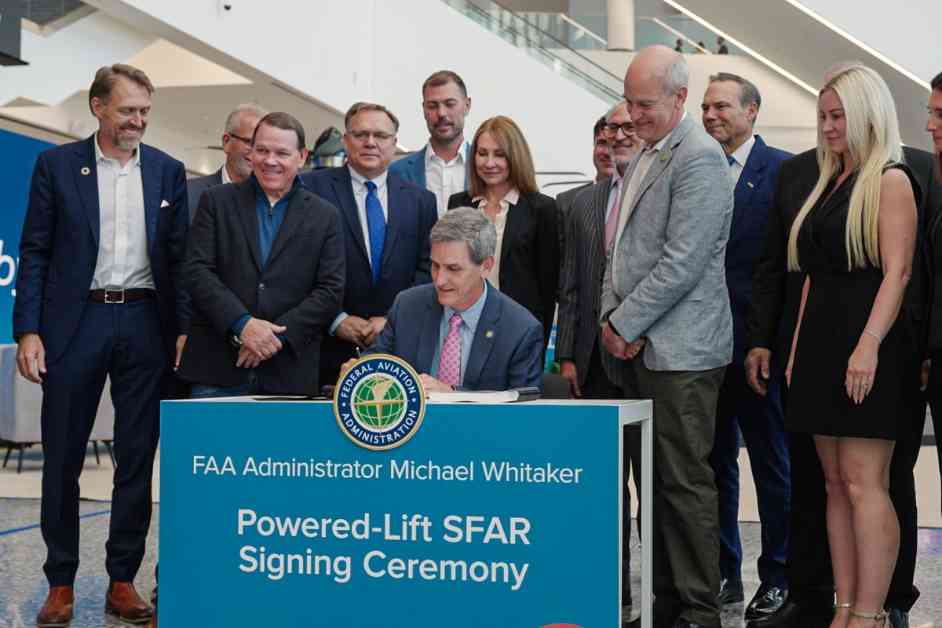Federal regulators in the United States have given the green light for electric vertical takeoff and landing (eVTOL) aircraft to share the airspace with traditional planes and helicopters. This decision comes as a major boost for the emerging industry and is particularly timely for startups like Joby Aviation and Archer Aviation, which are aiming to launch air taxi networks by 2025.
The Federal Aviation Administration (FAA) recently announced its final ruling on the integration of “powered-lift” vehicles, a category created specifically to accommodate eVTOLs. These aircraft can take off and land vertically like helicopters but then transition to forward flight like airplanes. FAA Administrator Mike Whitaker described this ruling as historic, marking the first new category of aircraft in nearly 80 years. The decision sets the stage for the future of Advanced Air Mobility (AAM) operations on a large scale.
In addition to allowing eVTOLs to operate in U.S. airspace, the ruling includes guidelines for pilot training and operating rules. For instance, a new type of powered-lift pilot certification has been introduced, along with expanded opportunities for pilot training using flight simulation devices. The operating rules have been tailored to suit powered-lift vehicles, granting eVTOLs the flexibility to adhere to helicopter or airplane rules as necessary.
Companies like Joby Aviation, Archer Aviation, Beta Technologies, and Wisk Aero have collaborated closely with the FAA since 2022 to develop these new regulations for training, operations, and maintenance. Greg Bowles, the head of government affairs at Joby Aviation, expressed satisfaction with the ruling, stating that it aligns perfectly with the company’s design philosophy. Joby is now in the final stages of obtaining Type Certification from the FAA, a crucial step indicating that the aircraft design complies with safety and airworthiness standards. With a recent $500 million investment from Toyota, Joby is poised to complete the certification process and commence commercial operations.
The approval from the FAA represents a significant milestone for the eVTOL industry, opening up new opportunities for companies to revolutionize urban air transportation, defense, cargo delivery, and medical logistics. With the regulatory framework in place, these startups can now focus on advancing their technology and preparing for the commercial launch of their innovative aircraft. The future of air mobility is taking off, and these developments signal a promising trajectory for the industry as a whole.











